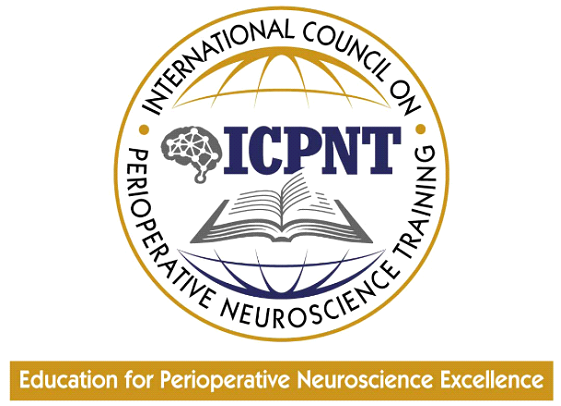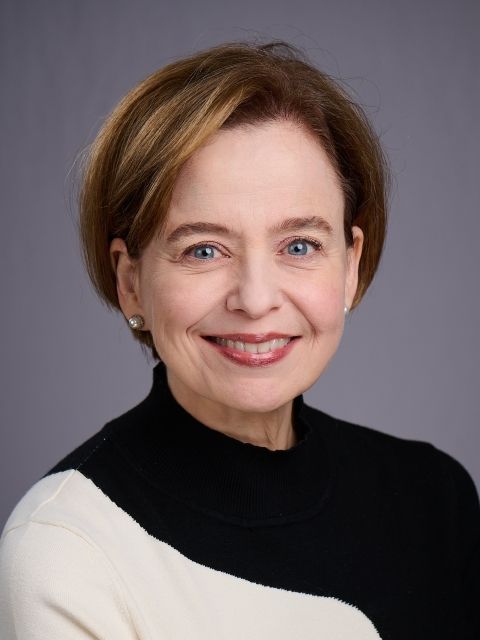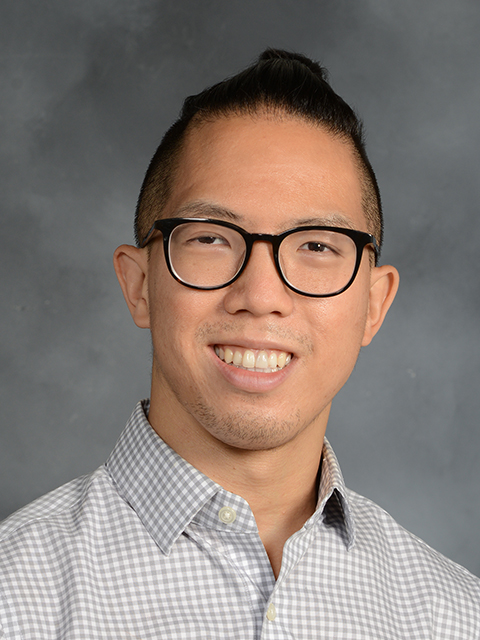Overview
The Department of Anesthesiology's Neuroanesthesiology Fellowship is designed to encourage further development in academic medicine.

The fellow will work with Drs. Maria Bustillo, Alina Boltunova, Peter Goldstein, David Kopman, Philip Kuo, Daniel Lahm, Patricia Fogarty Mack, Kane Pryor, Paul Riegelhaupt, Seyed Safavynia, and Jaroslav Usenko to develop clinical care protocol, actively pursue at least one research project, and participate in the education of residents rotating through the sub-specialty.
The fellow in neuroanesthesiology is expected to provide care for patients of all ages requiring the care of the neuroanesthesiology team, whether in the operating rooms on G3 or in the invasive neuroradiology suite. The fellow may also elect to provide care for patients in the neurosciences care unit, in which Dr. Daniel Lahm, in addition to a neurologist and a neurointensivist, attends.
GOALS
The goals for the Fellow in Neuroanesthesiology include the following:
- To gain extensive exposure to preoperative, intraoperative and postoperative management within the clinical subspecialty
- To become an expert in a clinical facet of the practice
- To become involved in ongoing research protocols in Neuroanesthesiology
- To design and initiate at least one research project within the subspecialty
- To present data at a national meeting during the fellowship and at a departmental “Research-in-Progress” meeting
- To attend at least ONE meeting oriented toward Neuroanesthesiology or monitoring for neurosurgery
- To be involved in the Neuroanesthesiology bi-monthly teaching series, and
- To become a highly skilled independent practitioner.
The division will consider all applications for the fellowship with a goal of taking up to one fellow per year. The fellowship will allow for a minimum of one academic day per week in order to read, write, and prepare lectures or manuscripts. During the first two months of fellowship, the fellow will be assigned to the most challenging neurosurgical cases and supervised by a member of the faculty in Neuroanesthesiology. Afterwards, he or she will work with/supervise a resident in the operating rooms or invasive neuroradiology. The types of patients for whom he/she provides care will depend specifically on the interests of the fellow.
Fellowship Program
Goals and Objectives
On a daily basis anesthesiologists are involved in the care of neurosurgical and neurologic patients in any of three areas.
The Operating Rooms
There are five operating rooms on the third floor of the Greenberg Pavilion with neurosurgical cases. Typically these are in the central core in rooms 11, 12, 18 and 19 and in G22 – which is equipped with fluoroscopy. On occasion, neurosurgical cases are scheduled in other operating rooms on the third floor and, in these cases, the Neuroanesthesiology care team is scheduled to provide care.
There are several neuroanesthesiologists, Drs. Bustillo, Boltunova, Goldstein, Kopman, Kuo, Lahm, Mack, Pryor, and Usenko who provide care for the majority of patients in each of these areas. For pediatric patients requiring neurosurgical procedures, care is provided by a pediatric anesthesiologist if the patient is less than 5 years of age and generally by one of the Neuroanesthesiology team if the patient is over the age of 5 years.
The types of surgical cases for which the team provides anesthesia includes, but are not limited to:
- Back surgery ranging from microdiscectomies to laminectomies and fusion as well as resection of spinal cord tumors
- Suboccipital craniotomies
- Awake craniotomies for mapping and resection of seizure foci or tumors
- Craniotomies for clipping of intracranial aneurysms
- Craniotomies for resection of AVMs
- Craniotomies for tumor resection
- Gene therapy for Parkinson’s Disease
- DBS placement for Parkinson’s Disease
- Endoscopic fenestration of intracranial cysts
- Carotid endarterectomies
Intraoperative care of any of these patients may include neurophysiologic monitoring (EMG, SSEP, BAER and MEP) by neurophysiologists, complex neuro-psychometric testing for the patients who are awake during their procedures, and monitoring of a processed electroencephalogram.
Neuroradiology
Procedures in neuroradiology involve patients of all ages and occur in up to 2 rooms in the INR suite on a daily basis. In addition to the scheduled cases, patients requiring management for acute stroke are treated at all hours of the day.
In the INR suite, the Neuroanesthesiology team provides care for patients requiring:
- Embolization of aneurysms
- Embolization of arteriovenous malformations
- Angiogram and therapy for patients with an acute stroke
- Angioplasty of stenotic intracranial vessels
- Treatment of carotid stenosis
- Embolization for epistaxis
- Embolization of facial hemangiomas
Neuroscience Care Unit
Dan Lahm, MD, attends in the NCU, an 18 bed unit, one week out of every four. The unit provides care for patients who have had neurosurgical procedures, neurology patients and patients requiring intensive care from other services and for whom there are no available beds in other units.
Faculty from Neuroanesthesiology, in addition to neurologists and neurointensivists attend in the neurosciences care unit, on 2SW – which is adjacent to the INR Suite. Residents from neurosurgery, neurology and anesthesiology rotate through the unit.
Expectations
Neuroanesthesiology Fellowship: Expectations
- The fellow in Neuroanesthesiology will initially function as a CA-4 resident and not as a “junior” attending. The fellow will be assigned to take S3 call during the week and overnight call on Fridays or Saturdays as an attending. If he or she desires, participation in extra Saturday or in vitro call will be allowed. Call will not be scheduled and will never require that the fellow is too fatigued to function during the week.
- The scheduling of the fellow will be inviolate. Should the fellow’s assistance be required to cover the operating rooms on any individual day, that time will be made up at a future date.
- The goal of the fellowship is to equip the fellow with the skills and tools necessary for an academic career in anesthesiology
Description
Description
A. Fellowship: The division will consider all applications for the fellowship with a goal of taking up to one fellow per year. The structure of the fellowship is flexible to accommodate the goals of the fellow. The fellowship will allow for a minimum of one academic day per week in order to read, write, and prepare lectures or manuscripts. If the Fellow is involved in enough research to warrant more academic time, it will be available to pursue research interests. During the first two months of fellowship, the fellow will be assigned to the most challenging neurosurgical cases and supervised by a member of the faculty in Neuroanesthesiology. After that, he or she will work with/supervise, with a member of the Neuroanesthesiology faculty, a resident in the operating rooms or INR. The types of patients for whom he or she provides care will depend specifically on the interests of the fellow.
Goals
- The fellow should gain extensive exposure to preoperative, intraoperative and postoperative management within the clinical subspecialty.
- The fellow will become an expert in a clinical facet of the practice.
- The fellow will become involved in any ongoing research protocols in Neuroanesthesiology
- The fellow will design and initiate at least one research project within the subspecialty
- The fellow will present data at a national meeting during the fellowship and a t a departmental “Research-in-Progress” meeting.
- The fellow will attend at least one meeting oriented toward Neuroanesthesiology or monitoring for neurosurgery
- The fellow will contribute to a Neuroanesthesia weekly meeting that serves as a venue to discuss clinical practices, interesting patients, recent articles and ongoing research
- The fellow will become a highly skilled independent practitioner
Structure
- For the first two months of fellowship, the fellow will be assigned to one of the Neuroanesthesiology sites three days a week to provide care, with supervision from the faculty in Neuroanesthesiology, for patients undergoing complex neurosurgical procedures. Thereafter he or she will assume a supervisory role on these three days. The resident assigned to the fellow’s room will call him or her to discuss an anesthetic plan. In the morning the fellow will discuss this plan with the responsible faculty.
- During two to three months of the fellowship, the fellow may elect to rotate through the neurosciences care unit. His presence there will be in addition to, rather than as a replacement for, one of the residents assigned to the unit. Responsibilities in the unit will include:
Making morning and evening rounds
Facilitating procedure such as invasive lines and bronchoscopies
Presenting topics to the residents in the unit one or two times per week
Supervising residents
Participating in any ongoing studies - The fellow will attend all departmental conferences pertaining to Neuroanesthesiology
- The fellow will work with the neurophysiologists to learn the basics of intraoperative neurophysiologic monitoring. The fellow will also participate in and facilitate any ongoing research with the neurophysiologists
- The fellow will meet with Dr. Bustillo at least once a week to review the progress being made during his or her fellowship
On academic days the fellow will be actively involved in
- Further design and implementation of research protocols
- Attend relevant neurosurgical conferences
- Prepare lectures for CA-1, 2 and 3 residents
- Coordinate the weekly Neuroanesthesiology Conference.
How to Apply
To be eligible to apply for the Neuroanesthesiology Fellowship you must have completed at least three years of an anesthesiology residency in the United States of America.
Please email your application and any questions regarding the application to Marlene Augustine at maa2010@med.cornell.edu
Fellowship Leadership

Maria Bustillo, MD
Chief, Division of Neuroanesthesiology
Program Director, Neuroanesthesia Fellowship
Professor of Clinical Anesthesiology
Professor of Anesthesiology in Clinical Neurological Surgery
Contact: Marlene Augustine
Fellowship Program Coordinator
Department of Anesthesiology
Weill Cornell Medicine
525 East 68th Street, Box 124
New York, NY 10065
Email: maa2010@med.cornell.edu
Phone: 212-746-2785
Former Fellow

Philip Kuo, MD
2020-2021


